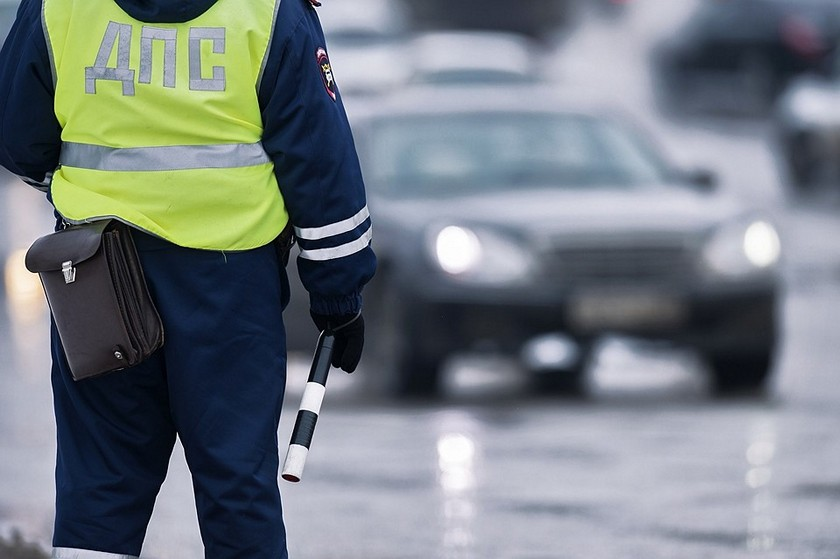Guide to Dealing with Traffic Police Stops in Russia
Let’s talk about a topic that concerns every driver: encounters with the traffic police (DPS) in Russia. It’s no secret that traffic cops aren’t exactly loved here, and everyone has their own reasons for that. Over my many years of driving, I’ve never had to flash a badge or say, “Guys, I’m one of you.” I’ve met all kinds of officers, from rude to totally reasonable. Regardless of your feelings about the police, read this, think it over, and use it. If you want to argue or add something, leave a comment or message me directly—we can discuss it.
Why Do Traffic Police Stop You?
During the day, it’s rare for a DPS officer to stop you for no reason. In 90% of cases, they’ve noticed a violation or your car matches the description of a wanted vehicle. Random stops are almost unheard of during busy hours, since there are plenty of “clients” for them to meet their protocol quotas (yes, officially the quota system is gone, but in reality, it’s not). Most officers are looking to fill out reports or, let’s be honest, supplement their income. Still, 60% of drivers would rather pay and move on than deal with paperwork.
General Advice for Avoiding Trouble
As in my first guide, let’s imagine you’re a driver transporting something you shouldn’t be. Hopefully, you’re not the genius driving with illegal window tint, blinding xenon headlights, and filming the cop while shouting, “On what grounds did you stop me? Show your ID! I’m a citizen of the USSR!” If you are, expect your car (and you) to be thoroughly searched.
The simplest advice: If you don’t want frequent run-ins with the DPS, don’t break traffic laws and avoid things that attract attention (like silly stickers).
What to Pay Attention to When Stopped
- The number of patrol cars nearby.
- Whether the officer approaching you is wearing a body camera (“DOZOR”).
Stay calm. If your hands are shaking, just say it’s your first time talking to a DPS officer—doesn’t matter how long you’ve been driving or how old you are. Don’t be overly polite, but don’t be rude either. These officers are experts at reading people and will pick up on any odd behavior. Shifty eyes, glancing at certain spots in your car, or fidgeting can make them suspicious. Young drivers are often taken for drug testing if they seem nervous or have dilated pupils. Any deviation from “normal” behavior can make the officer more aggressive.
If You’re Stopped for a Minor Violation
Let’s say you’re stopped for something minor (tint, headlights, exhaust, lowered car, not using turn signals or headlights). Stay calm. If you have issues with your documents, don’t mention it right away. Here’s a little life hack to avoid a ticket:
- Always carry about 500 rubles in cash for minor fines, or better yet, 3,000 rubles in small bills.
- If stopped, immediately admit your fault and say you’re willing to settle (if the officer has a camera, ask for their partner—usually only one body camera per crew). If the officer doesn’t get it, say you know their partner.
- With an officer not wearing a camera, admit your violation and say you have a lot of unpaid speeding tickets from a recent trip to Moscow.
The point of this trick: To write you up for a minor violation, the officer will check your license and car in the database. If you have unpaid fines older than 60 days, they’re required to write up an administrative protocol under Article 20.25 of the Administrative Code, which is a long and tedious process. Most officers would rather not bother with this when there are plenty of other minor offenders around with cash in hand.
When Asked to Show Your Trunk or Interior
If asked to show your trunk or car interior, do it calmly—don’t be foolish enough to carry illegal items in plain sight. Refusing or demanding witnesses will likely lead to a full search, which could cause bigger problems if they find anything.
General Rules for Smooth Encounters
In general, act normal, don’t draw attention to yourself, and don’t try to “flex your rights” aggressively. In 99% of cases, you’ll be on your way quickly. But if you’re high, your car is wanted, or you start acting like a “YouTube lawyer,” be ready for all the consequences, including a trip to the police station.
Nighttime Stops: Higher Risks
- The risk of being stopped for full checks increases dramatically at night.
- You’re much more likely to be asked to open your trunk and interior.
- Document checks and Article 20.25 protocols are much more common.
- Drug testing is more likely.
- You may encounter 3-4 patrol cars at one spot, making negotiation impossible.
Bottom line: Don’t do shady things on the road at night.
Best Times to Drive
Traffic police work 12-hour shifts, usually from 8:00 AM to 8:00 PM and 8:00 PM to 8:00 AM. The safest time to be on the road is the first 40 minutes after their shift starts, while they’re still getting organized. Later, they may be rushing to fill quotas or finish up paperwork before the end of their shift.
Use these tips and leave feedback—I’d like to know if this advice is helpful!



